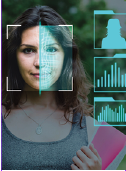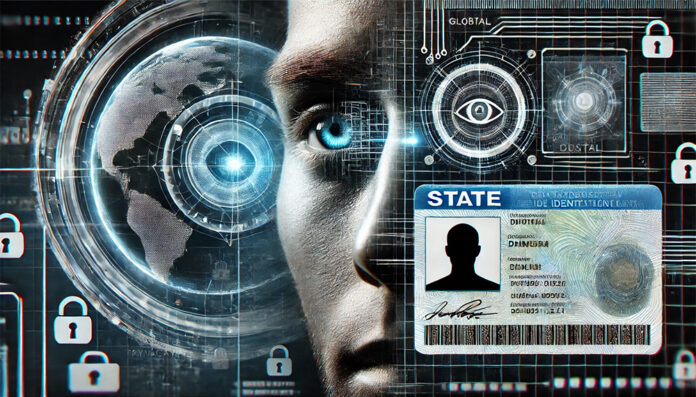
Under the guise of convenience and safety, a sweeping effort is underway to reshape the foundations of personal autonomy and privacy in the United States and beyond. The Real ID Act, initially framed as a tool for national security, has gradually turned into a mechanism to centralize control over individual identity. This quiet shift towards a national database—a “national brain,” as some aptly describe it—is a disquieting reality, especially for those who cherish the traditional independence of state governance.
For decades, a driver’s license represented state sovereignty. It was a symbol of localized governance, a testament to the individual identity managed independently by each state. The advent of the Real ID, however, has begun to erode this sovereignty. Through relentless advertising and subtle coercion, citizens are being pushed to exchange their traditional licenses for federally compliant IDs. What used to be a matter of state pride and individual discretion now feels like a compulsory enrollment into a larger, more intrusive system.
While the Real ID Act was born out of domestic policy, it mirrors a broader global trend. The World Economic Forum (WEF), a key player in the globalization of governance, has recently unveiled its ambition to extend digital ID systems into the realm of the metaverse. Their November report, “Shared Commitments in a Blended Reality,” outlines a vision for a fully traceable and controlled digital future. At its core is the imposition of a digital identity framework that would govern every interaction, transaction, and movement across blended physical and digital realities.
 The report champions digital ID as a solution to issues like cyberbullying, harassment, and misinformation. It argues that in a world where people cannot “unsee” or “un-experience” interactions, it is essential to regulate behavior through traceable identities. Such logic might sound appealing on the surface, but it raises profound concerns about personal freedom and agency.
The report champions digital ID as a solution to issues like cyberbullying, harassment, and misinformation. It argues that in a world where people cannot “unsee” or “un-experience” interactions, it is essential to regulate behavior through traceable identities. Such logic might sound appealing on the surface, but it raises profound concerns about personal freedom and agency.
Digital ID—the linchpin of the WEF’s governance framework—would create an ecosystem where all actions are monitored, recorded, and controlled. From verifying the authenticity of digital assets to moderating online conduct, every aspect of life could be subjected to scrutiny under the guise of protecting “safety” and “transparency.” And while the WEF claims that these measures are necessary to address transnational issues like cybercrime and misinformation, the reality is far more insidious: this system centralizes power in the hands of unelected technocrats, stripping individuals of their autonomy.
One of the most alarming aspects of this vision is its emphasis on “traceability and control.” By linking every transaction and interaction to a digital ID, the line between the physical and digital worlds blurs, creating an environment where nothing escapes surveillance. Transactions, asset ownership, and even personal interactions could be subjected to a chain of custody, all justified under the pretense of maintaining “authenticity” and “accountability.”
The Real ID initiative in the United States serves as a domestic parallel to this global push. Both aim to consolidate data and impose a uniform identity system. However, as citizens, we must ask: where does this end? If digital ID becomes mandatory for basic activities, from accessing healthcare to participating in digital spaces, what freedom remains? The slippery slope of surveillance and control looms large, and history has taught us that such measures, once implemented, are rarely rolled back.
Advocates of digital ID argue that it can empower individuals by providing “security” and “transparency.” Yet, as we’ve seen with vaccine passports and other digital mandates, these systems often become tools of exclusion. Non-compliance can lead to loss of access to goods and services, effectively forcing individuals to conform. Despite the WEF’s lip service to “preservation of choice,” the reality is starkly different. Opting out of digital ID systems is increasingly portrayed as impractical, if not impossible.
There is an alternative for those concerned about the Real ID’s reach. The U.S. passport card remains a viable option. It’s federally recognized, allows for domestic travel, and doesn’t require sharing additional personal information with centralized databases. For non-U.S. citizens, your valid passport from your home country can still be used for domestic flights. However, it’s important to note that old state IDs or driver’s licenses will no longer be accepted for boarding a plane in the near future.
This approach, however, is not a long-term solution. The broader issue is the incremental erosion of privacy and freedom under the pretense of modernization.
As global initiatives like those of the WEF gain momentum, they expose the dangers of consolidating power in the hands of a few. Centralized digital ID systems risk transforming societies into digital panopticons, where every action is monitored and controlled. Such a future is antithetical to the principles of freedom and democracy.
The path forward requires vigilance and resistance. Citizens must demand transparency and accountability from their governments. Policies that prioritize individual autonomy over centralized control must be championed. While technology offers incredible potential, it must not come at the cost of fundamental freedoms. The promise of “progress” must not blind us to the risks of totalitarian control in the digital age.
The time to act is now. As governments and global entities push for digital ID systems under various pretexts, it is up to us to safeguard the values of privacy and autonomy. Rejecting systems like the Real ID and advocating for decentralized, transparent alternatives is not just a choice—it is a necessity. Freedom, after all, is not something to be granted by governments or technocrats; it is a right that must be fiercely protected and preserved.



